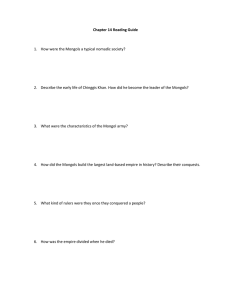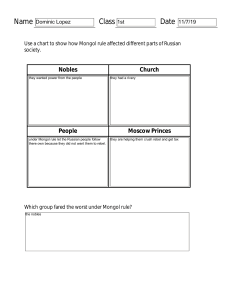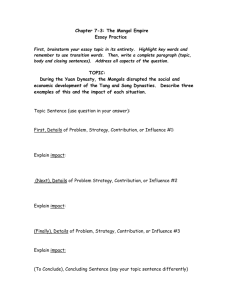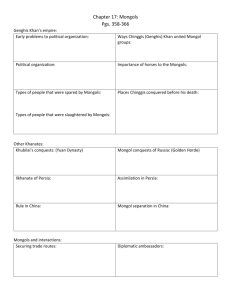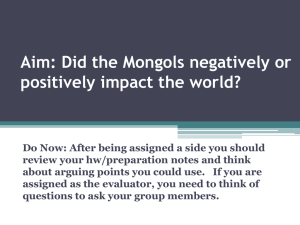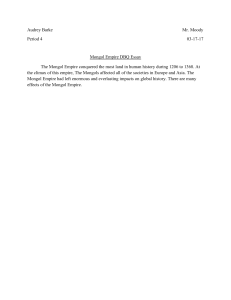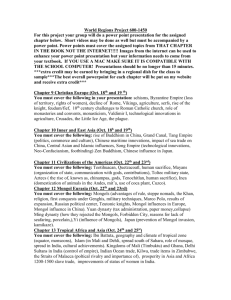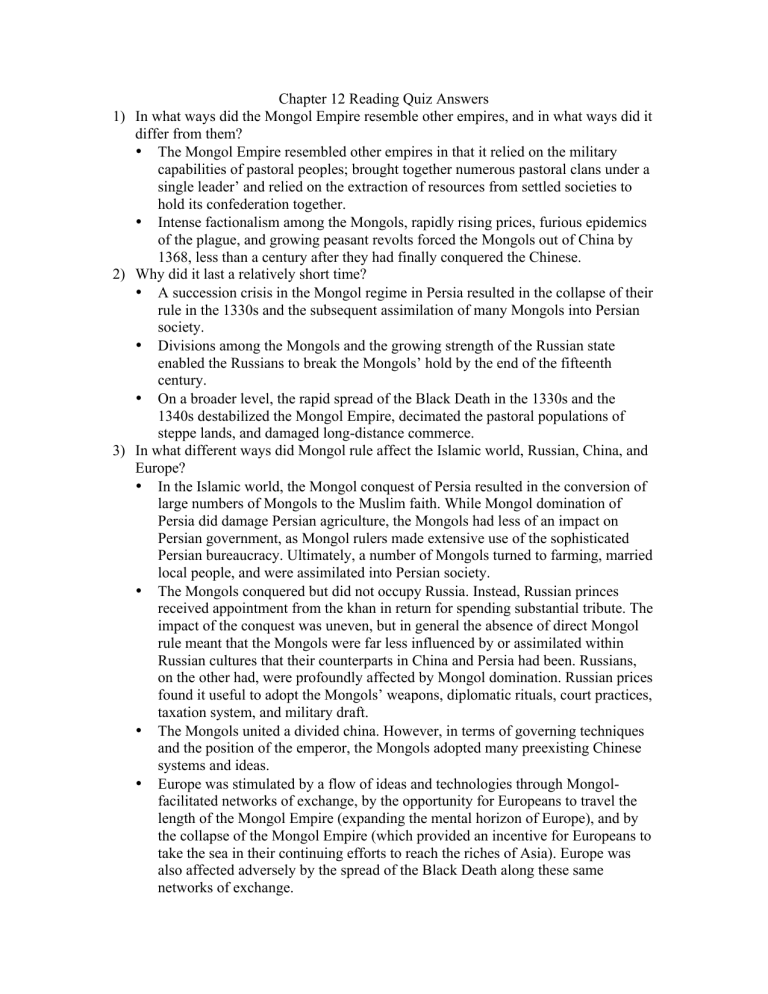
Chapter 12 Reading Quiz Answers 1) In what ways did the Mongol Empire resemble other empires, and in what ways did it differ from them? • The Mongol Empire resembled other empires in that it relied on the military capabilities of pastoral peoples; brought together numerous pastoral clans under a single leader’ and relied on the extraction of resources from settled societies to hold its confederation together. • Intense factionalism among the Mongols, rapidly rising prices, furious epidemics of the plague, and growing peasant revolts forced the Mongols out of China by 1368, less than a century after they had finally conquered the Chinese. 2) Why did it last a relatively short time? • A succession crisis in the Mongol regime in Persia resulted in the collapse of their rule in the 1330s and the subsequent assimilation of many Mongols into Persian society. • Divisions among the Mongols and the growing strength of the Russian state enabled the Russians to break the Mongols’ hold by the end of the fifteenth century. • On a broader level, the rapid spread of the Black Death in the 1330s and the 1340s destabilized the Mongol Empire, decimated the pastoral populations of steppe lands, and damaged long-distance commerce. 3) In what different ways did Mongol rule affect the Islamic world, Russian, China, and Europe? • In the Islamic world, the Mongol conquest of Persia resulted in the conversion of large numbers of Mongols to the Muslim faith. While Mongol domination of Persia did damage Persian agriculture, the Mongols had less of an impact on Persian government, as Mongol rulers made extensive use of the sophisticated Persian bureaucracy. Ultimately, a number of Mongols turned to farming, married local people, and were assimilated into Persian society. • The Mongols conquered but did not occupy Russia. Instead, Russian princes received appointment from the khan in return for spending substantial tribute. The impact of the conquest was uneven, but in general the absence of direct Mongol rule meant that the Mongols were far less influenced by or assimilated within Russian cultures that their counterparts in China and Persia had been. Russians, on the other had, were profoundly affected by Mongol domination. Russian prices found it useful to adopt the Mongols’ weapons, diplomatic rituals, court practices, taxation system, and military draft. • The Mongols united a divided china. However, in terms of governing techniques and the position of the emperor, the Mongols adopted many preexisting Chinese systems and ideas. • Europe was stimulated by a flow of ideas and technologies through Mongolfacilitated networks of exchange, by the opportunity for Europeans to travel the length of the Mongol Empire (expanding the mental horizon of Europe), and by the collapse of the Mongol Empire (which provided an incentive for Europeans to take the sea in their continuing efforts to reach the riches of Asia). Europe was also affected adversely by the spread of the Black Death along these same networks of exchange. 4) How would you define both the immediate and the long-term significance of the Mongols in world history? • In the short term, the Mongols constructed the larges Eurasian empire to date. • In the process, they destroyed a series of well-established empires. • They wreaked extensive destruction on settled populations. • They encouraged trade and exchange across the Eurasian network. • The fostered the spread of the Black Death across Eurasia. • In the long term, the Mongol-enforced movement of conquered peoples from their homelands to distant parts of the empire facilitated the exchange of ideas and techniques, as exemplified by the flow of Chinese technology and artistic conventions westward to the Middle East and Europe. • The disruption of Mongol-based land routes to the east following the collapse of the Mongol Empire provided an important incentive for Europeans to take the sea in their continuing efforts to reach the riches of Asia.
